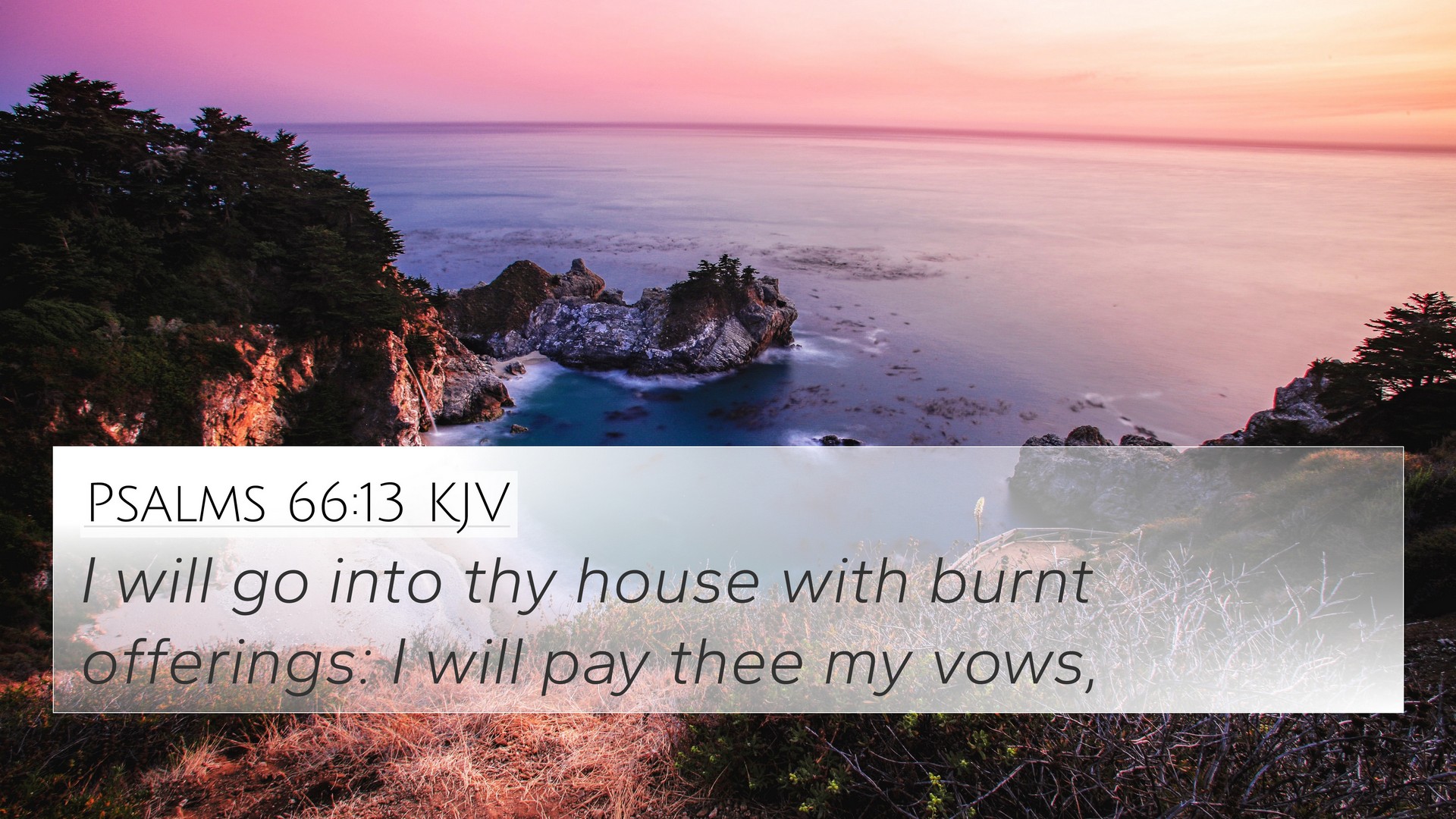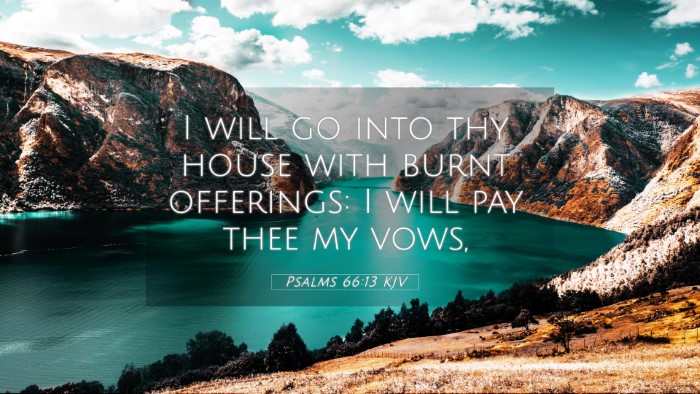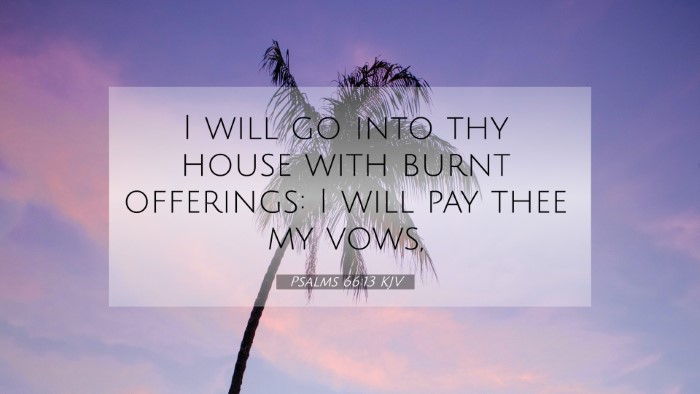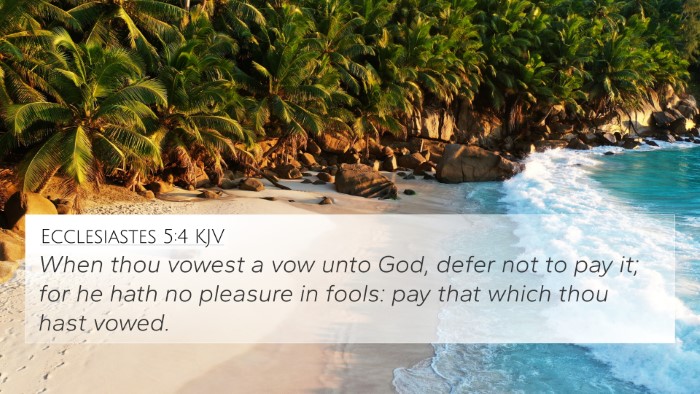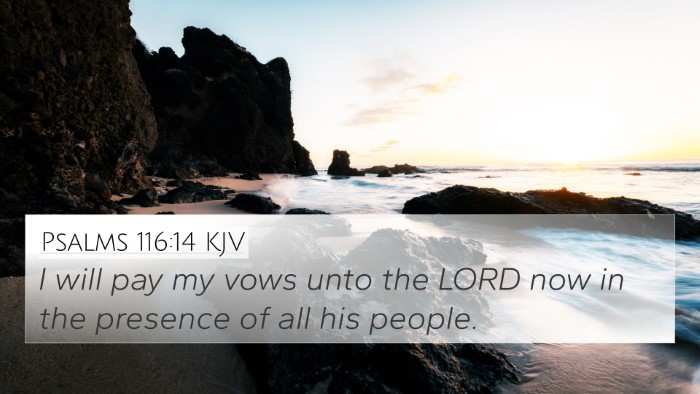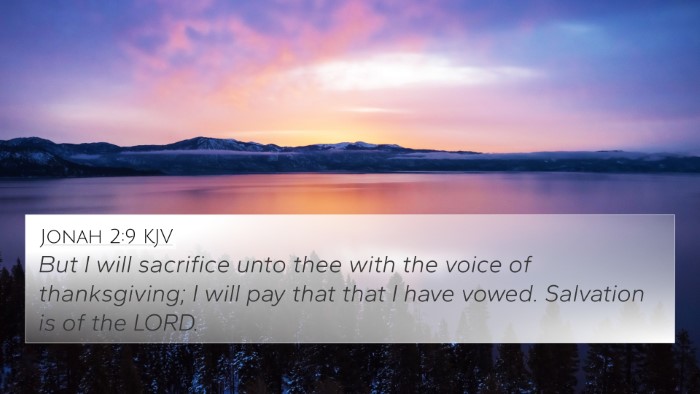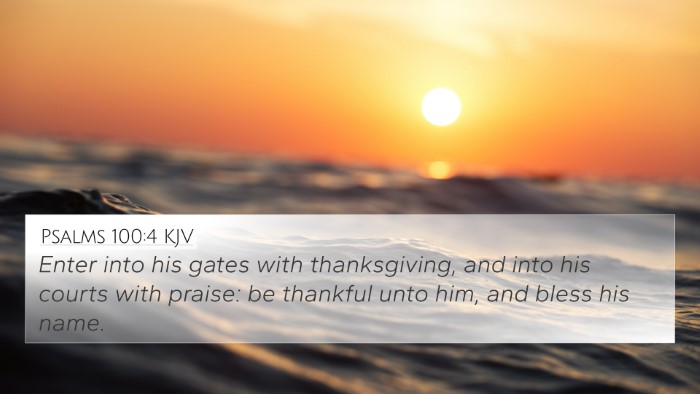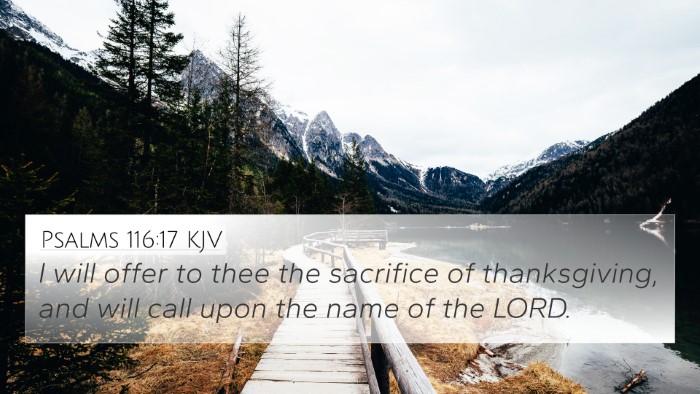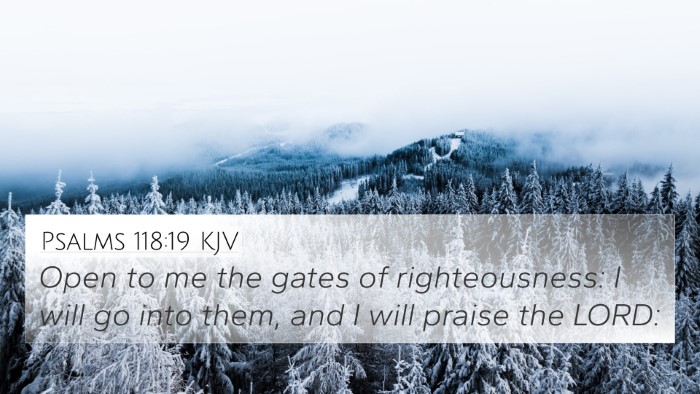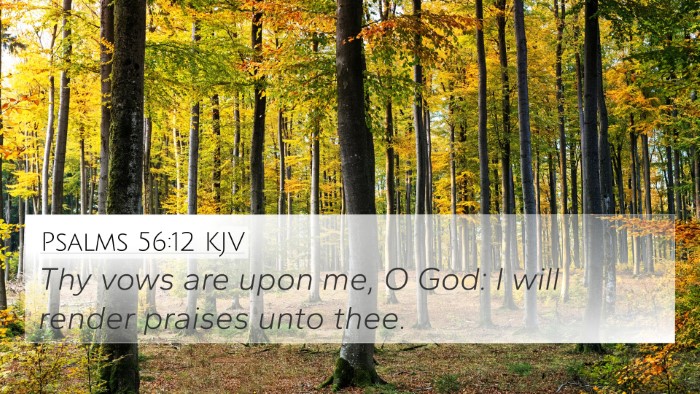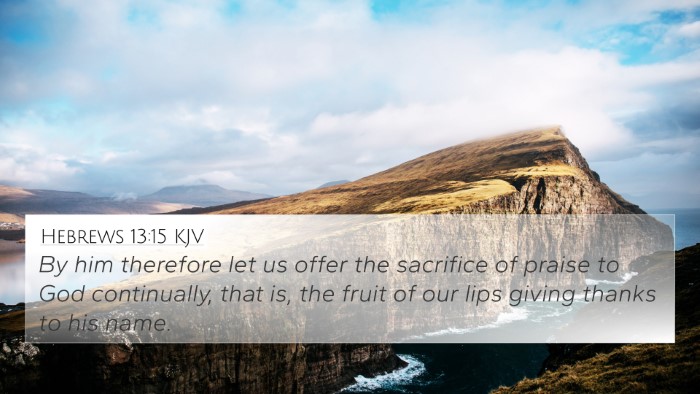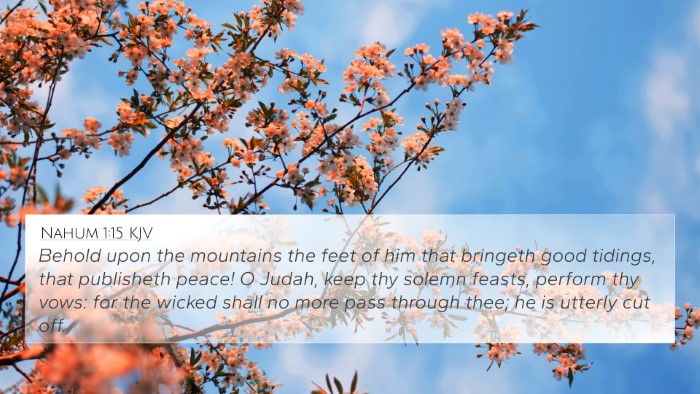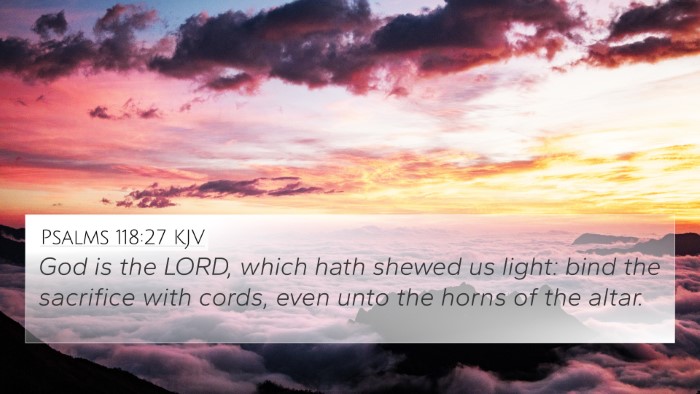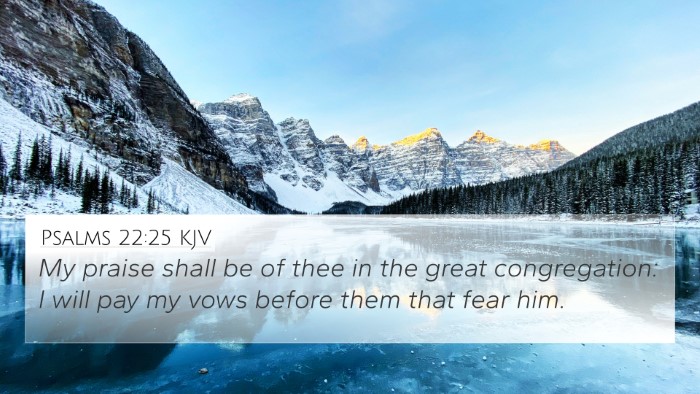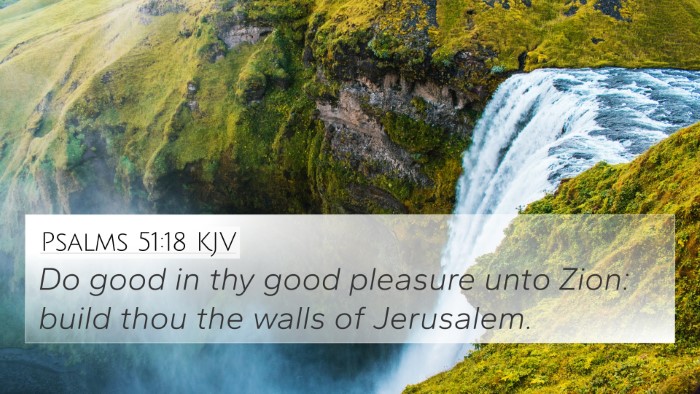Psalms 66:13 - Understanding the Verse
Psalms 66:13 states: "I will go into thy house with burnt offerings: I will pay thee my vows." This verse reflects a moment of dedication and recognition of divine obligations. It reveals the psalmist's intent to worship God with offerings as an act of gratitude and fulfillment of promises made. Below, we will explore detailed insights drawn from various public domain commentaries to deepen your understanding of this scripture.
Commentary Insights
Matthew Henry's Commentary
Matthew Henry highlights the importance of coming into God's house with the right spirit. He notes that burnt offerings symbolize the total dedication of oneself to God, indicating a complete surrender. This act of worship serves as a response to God's goodness and an expression of gratitude for His grace and protection.
Albert Barnes' Notes
Albert Barnes emphasizes the communal aspect of worship in this verse. He suggests that the psalmist is expressing a commitment to participate in the community's acts of worship. By bringing burnt offerings, the psalmist acknowledges the need for reconciliation and the joy of fulfilling religious duties as a testimony of faith.
Adam Clarke's Commentary
Adam Clarke adds that the words express not only the intention of offering but also the act of paying vows, which indicates a promise made in times of distress. He points out that fulfilling these vows in the house of the Lord demonstrates sincerity and a deep-seated respect for the covenant relationship between God and His people.
Cross-References of Psalms 66:13
Understanding Psalms 66:13 is enriched by examining related scriptures. Here are some key cross-references that illustrate similar themes:
- Leviticus 1:3 - Details the instructions for burnt offerings, depicting the system of sacrifices instituted by God.
- 1 Samuel 1:21 - Hannah fulfills her vow by bringing Samuel to the house of the Lord, highlighting the seriousness of fulfilling vows.
- Psalm 50:14 - God desires thank offerings and the fulfillment of vows as acknowledgment of His sovereignty.
- Psalm 76:11 - Encourages bringing gifts to the Lord and paying vows, reinforcing the theme of commitment.
- Ecclesiastes 5:4-5 - Discusses the importance of paying vows made to God, emphasizing that He does not take pleasure in foolish commitments.
- Hebrews 13:15-16 - Invites believers to offer sacrifices of praise to God, linking New Testament worship to Old Testament practices.
- Romans 12:1 - Encourages presenting our bodies as living sacrifices, which resonates with the themes of dedication and offerings.
Thematic Connections
This verse can be linked thematically to several biblical concepts:
- Worship and Sacrifice: The act of bringing burnt offerings as an expression of worship is central in both the Old and New Testaments.
- Fulfillment of Vows: Numerous passages address the importance of vows made to God and the necessity of fulfilling them.
- Community Worship: The importance of participating in communal worship as seen in various Psalms and other scriptures.
Tools for Understanding Bible Verse Connections
To further explore these connections, consider utilizing the following tools:
- A Bible concordance to find terms related to 'burnt offering' and 'vows'.
- A Bible cross-reference guide for deeper study into related verses.
- Cross-reference Bible study methods to compare themes across different books of the Bible.
Conclusion
Psalms 66:13 signifies a profound commitment to worship and the importance of fulfilling one's promises to God. Through various public domain commentaries, we gain a richer understanding of the verse's implications. By examining cross-references, we can appreciate how this scripture connects to broader themes of sacrifice, community, and the fulfillment of vows throughout the Bible.
